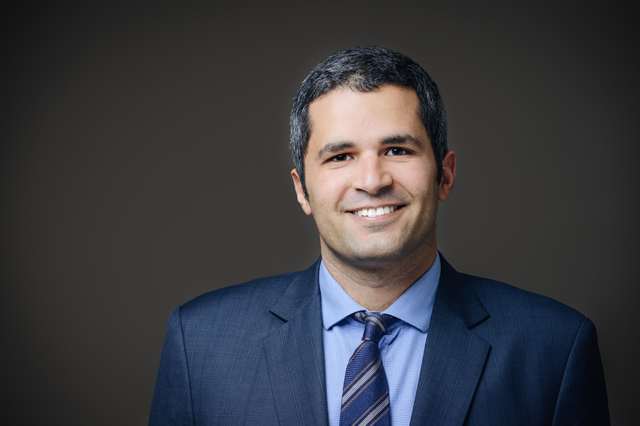1st of January, 2014
Foreign Investment: A New Framework – The Lawyer Magazine
Keywords: Financial Institutions, Infrastructure & Projects
Partner Karim Sarhan writes on FDI in Egypt in “The Lawyer” magazine. Egypt has gone through some significant social changes. Now it is time for new policies for FDI in Egypt. Egypt has seen waves of popular uprisings since 2011 calling for, among other things, social justice. Economic policy reforms that do not take this into account will not be heading in the right direction. At the heart of the economic policies is the question of how to maximize the country’s benefits from foreign direct investment (FDI). So what are the main features of the current legal framework of FDI in Egypt and are there any reforms required?
FDI legal framework Most Egyptian laws regulating investments do not distinguish between foreign and national investors. This can be explained as follows:
● There are a few activities that require the capital of a company to be fully owned by Egyptians, as agency, importation and currency exchange houses. Other than that, foreign investors can establish companies in Egypt to carry out most commercial activities without a requirement to have any Egyptian shareholders. In addition, the board members of a joint-stock company – which is the most common type of company in Egypt for large and mid-size businesses – can all be foreigners.
● Even companies fully owned by foreigners are entitled to acquire real estate assets that are required for their activities.
● Investment guarantees and incentives under local Egyptian laws apply to foreign investors.
● There are no restrictions on the ability of foreign investors to remit their profits in Egypt as long as such remittance is made through banks licensed in Egypt. There is no obligation on foreign investors to reinvest part of their profits in Egypt.
● The Egyptian Investment Law prohibits the government from nationalising any company.
● In general, investment guarantees and incentives do not favour certain commercial activities over others. In other words, there is no distinction between those who invest in labour-intense
industries and those who invest in selling consumer products using a small labour force. Both are subject to the same tax rate.
The above legal rules seem investor-friendly and have helped to attract FDI. However, in practice, dealing with the governmental authorities remains challenging, with many officials reluctant to take decisions after the 2011 revolution. The legal framework’s main drawback is it appears to be concerned with attracting FDI without much emphasis on the nature of such investments. The laws are based on the assumption that attracting FDI in itself will help to reduce unemployment and poverty rates (among the main causes of the uprisings), irrespective of the sectors of such FDI. This assumption has proven inaccurate in Egypt’s case.
FDI rates increased significantly in Egypt in the last years of Mubarak’s rule. According to the Investment Report of 2008 issued by the General Authority for Investment, FDI increased significantly from 2004, and in 2007 reached $11.1bn. However, poverty rates increased too. The report stated this was due to the investments not being directed to labour-intense sectors of the economy and therefore did not create enough new jobs.
A new FDI policy?
Such a policy should aim to attract FDI to the sectors that will add value to the Egyptian economy. Directing FDI to specifi c sectors can be done through granting more incentives and
exemptions to those who will invest in these sectors. Scientific research and innovation for commercial use is one of the most important sectors that needs investment in Egypt. Innovation creates new commercial activities that may not have existed before. This means new job opportunities and new sources of income. Many countries have reduced tax rates on the profi ts of companies that develop and sell innovative products and patents. Egypt should consider applying this.
Renewable energy is another sector that needs to attract FDI. Countries attract investment to renewables through tax exemption periods; making land available for the projects on reasonable terms and reduced prices; and facilitating loans and finance to the companies working in this field. Egypt should consider similar packages.
Egypt also needs to encourage foreign investors to adopt ‘inclusive business models’ through incentives and exemptions. These models aim to achieve mutual benefits for investors and residents of poor neighborhoods. There is a value chain for every business, which includes the suppliers, the employees of the business, the distributors and finally the consumers. Inclusive business models aim to include those at the bottom of the income pyramid of the host country. This can be done either through contracting with them as suppliers for the investor or as employees or distributors of the goods or services. These models have been applied in a number of cases in developing countries in Latin America and Africa.
Egypt’s significant political and social changes could be seen as a real challenge. But they could also be seen as an opportunity for rethinking the old policies and opening a door for reform.
FDI legal framework Most Egyptian laws regulating investments do not distinguish between foreign and national investors. This can be explained as follows:
● There are a few activities that require the capital of a company to be fully owned by Egyptians, as agency, importation and currency exchange houses. Other than that, foreign investors can establish companies in Egypt to carry out most commercial activities without a requirement to have any Egyptian shareholders. In addition, the board members of a joint-stock company – which is the most common type of company in Egypt for large and mid-size businesses – can all be foreigners.
● Even companies fully owned by foreigners are entitled to acquire real estate assets that are required for their activities.
● Investment guarantees and incentives under local Egyptian laws apply to foreign investors.
● There are no restrictions on the ability of foreign investors to remit their profits in Egypt as long as such remittance is made through banks licensed in Egypt. There is no obligation on foreign investors to reinvest part of their profits in Egypt.
● The Egyptian Investment Law prohibits the government from nationalising any company.
● In general, investment guarantees and incentives do not favour certain commercial activities over others. In other words, there is no distinction between those who invest in labour-intense
industries and those who invest in selling consumer products using a small labour force. Both are subject to the same tax rate.
The above legal rules seem investor-friendly and have helped to attract FDI. However, in practice, dealing with the governmental authorities remains challenging, with many officials reluctant to take decisions after the 2011 revolution. The legal framework’s main drawback is it appears to be concerned with attracting FDI without much emphasis on the nature of such investments. The laws are based on the assumption that attracting FDI in itself will help to reduce unemployment and poverty rates (among the main causes of the uprisings), irrespective of the sectors of such FDI. This assumption has proven inaccurate in Egypt’s case.
FDI rates increased significantly in Egypt in the last years of Mubarak’s rule. According to the Investment Report of 2008 issued by the General Authority for Investment, FDI increased significantly from 2004, and in 2007 reached $11.1bn. However, poverty rates increased too. The report stated this was due to the investments not being directed to labour-intense sectors of the economy and therefore did not create enough new jobs.
A new FDI policy?
Such a policy should aim to attract FDI to the sectors that will add value to the Egyptian economy. Directing FDI to specifi c sectors can be done through granting more incentives and
exemptions to those who will invest in these sectors. Scientific research and innovation for commercial use is one of the most important sectors that needs investment in Egypt. Innovation creates new commercial activities that may not have existed before. This means new job opportunities and new sources of income. Many countries have reduced tax rates on the profi ts of companies that develop and sell innovative products and patents. Egypt should consider applying this.
Renewable energy is another sector that needs to attract FDI. Countries attract investment to renewables through tax exemption periods; making land available for the projects on reasonable terms and reduced prices; and facilitating loans and finance to the companies working in this field. Egypt should consider similar packages.
Egypt also needs to encourage foreign investors to adopt ‘inclusive business models’ through incentives and exemptions. These models aim to achieve mutual benefits for investors and residents of poor neighborhoods. There is a value chain for every business, which includes the suppliers, the employees of the business, the distributors and finally the consumers. Inclusive business models aim to include those at the bottom of the income pyramid of the host country. This can be done either through contracting with them as suppliers for the investor or as employees or distributors of the goods or services. These models have been applied in a number of cases in developing countries in Latin America and Africa.
Egypt’s significant political and social changes could be seen as a real challenge. But they could also be seen as an opportunity for rethinking the old policies and opening a door for reform.

Foreign Investment: A New Framework – The Lawyer Magazine
1 January, 2014
Keywords: Financial Institutions, Infrastructure & Projects
Partner Karim Sarhan writes on FDI in Egypt in “The Lawyer” magazine. Egypt has gone through some significant social changes. Now it is time for new policies for FDI in Egypt. Egypt has seen waves of popular uprisings since 2011 calling for, among other things, social justice. Economic policy reforms that do not take this into account will not be heading in the right direction. At the heart of the economic policies is the question of how to maximize the country’s benefits from foreign direct investment (FDI). So what are the main features of the current legal framework of FDI in Egypt and are there any reforms required?
FDI legal framework Most Egyptian laws regulating investments do not distinguish between foreign and national investors. This can be explained as follows:
● There are a few activities that require the capital of a company to be fully owned by Egyptians, as agency, importation and currency exchange houses. Other than that, foreign investors can establish companies in Egypt to carry out most commercial activities without a requirement to have any Egyptian shareholders. In addition, the board members of a joint-stock company – which is the most common type of company in Egypt for large and mid-size businesses – can all be foreigners.
● Even companies fully owned by foreigners are entitled to acquire real estate assets that are required for their activities.
● Investment guarantees and incentives under local Egyptian laws apply to foreign investors.
● There are no restrictions on the ability of foreign investors to remit their profits in Egypt as long as such remittance is made through banks licensed in Egypt. There is no obligation on foreign investors to reinvest part of their profits in Egypt.
● The Egyptian Investment Law prohibits the government from nationalising any company.
● In general, investment guarantees and incentives do not favour certain commercial activities over others. In other words, there is no distinction between those who invest in labour-intense
industries and those who invest in selling consumer products using a small labour force. Both are subject to the same tax rate.
The above legal rules seem investor-friendly and have helped to attract FDI. However, in practice, dealing with the governmental authorities remains challenging, with many officials reluctant to take decisions after the 2011 revolution. The legal framework’s main drawback is it appears to be concerned with attracting FDI without much emphasis on the nature of such investments. The laws are based on the assumption that attracting FDI in itself will help to reduce unemployment and poverty rates (among the main causes of the uprisings), irrespective of the sectors of such FDI. This assumption has proven inaccurate in Egypt’s case.
FDI rates increased significantly in Egypt in the last years of Mubarak’s rule. According to the Investment Report of 2008 issued by the General Authority for Investment, FDI increased significantly from 2004, and in 2007 reached $11.1bn. However, poverty rates increased too. The report stated this was due to the investments not being directed to labour-intense sectors of the economy and therefore did not create enough new jobs.
A new FDI policy?
Such a policy should aim to attract FDI to the sectors that will add value to the Egyptian economy. Directing FDI to specifi c sectors can be done through granting more incentives and
exemptions to those who will invest in these sectors. Scientific research and innovation for commercial use is one of the most important sectors that needs investment in Egypt. Innovation creates new commercial activities that may not have existed before. This means new job opportunities and new sources of income. Many countries have reduced tax rates on the profi ts of companies that develop and sell innovative products and patents. Egypt should consider applying this.
Renewable energy is another sector that needs to attract FDI. Countries attract investment to renewables through tax exemption periods; making land available for the projects on reasonable terms and reduced prices; and facilitating loans and finance to the companies working in this field. Egypt should consider similar packages.
Egypt also needs to encourage foreign investors to adopt ‘inclusive business models’ through incentives and exemptions. These models aim to achieve mutual benefits for investors and residents of poor neighborhoods. There is a value chain for every business, which includes the suppliers, the employees of the business, the distributors and finally the consumers. Inclusive business models aim to include those at the bottom of the income pyramid of the host country. This can be done either through contracting with them as suppliers for the investor or as employees or distributors of the goods or services. These models have been applied in a number of cases in developing countries in Latin America and Africa.
Egypt’s significant political and social changes could be seen as a real challenge. But they could also be seen as an opportunity for rethinking the old policies and opening a door for reform.
FDI legal framework Most Egyptian laws regulating investments do not distinguish between foreign and national investors. This can be explained as follows:
● There are a few activities that require the capital of a company to be fully owned by Egyptians, as agency, importation and currency exchange houses. Other than that, foreign investors can establish companies in Egypt to carry out most commercial activities without a requirement to have any Egyptian shareholders. In addition, the board members of a joint-stock company – which is the most common type of company in Egypt for large and mid-size businesses – can all be foreigners.
● Even companies fully owned by foreigners are entitled to acquire real estate assets that are required for their activities.
● Investment guarantees and incentives under local Egyptian laws apply to foreign investors.
● There are no restrictions on the ability of foreign investors to remit their profits in Egypt as long as such remittance is made through banks licensed in Egypt. There is no obligation on foreign investors to reinvest part of their profits in Egypt.
● The Egyptian Investment Law prohibits the government from nationalising any company.
● In general, investment guarantees and incentives do not favour certain commercial activities over others. In other words, there is no distinction between those who invest in labour-intense
industries and those who invest in selling consumer products using a small labour force. Both are subject to the same tax rate.
The above legal rules seem investor-friendly and have helped to attract FDI. However, in practice, dealing with the governmental authorities remains challenging, with many officials reluctant to take decisions after the 2011 revolution. The legal framework’s main drawback is it appears to be concerned with attracting FDI without much emphasis on the nature of such investments. The laws are based on the assumption that attracting FDI in itself will help to reduce unemployment and poverty rates (among the main causes of the uprisings), irrespective of the sectors of such FDI. This assumption has proven inaccurate in Egypt’s case.
FDI rates increased significantly in Egypt in the last years of Mubarak’s rule. According to the Investment Report of 2008 issued by the General Authority for Investment, FDI increased significantly from 2004, and in 2007 reached $11.1bn. However, poverty rates increased too. The report stated this was due to the investments not being directed to labour-intense sectors of the economy and therefore did not create enough new jobs.
A new FDI policy?
Such a policy should aim to attract FDI to the sectors that will add value to the Egyptian economy. Directing FDI to specifi c sectors can be done through granting more incentives and
exemptions to those who will invest in these sectors. Scientific research and innovation for commercial use is one of the most important sectors that needs investment in Egypt. Innovation creates new commercial activities that may not have existed before. This means new job opportunities and new sources of income. Many countries have reduced tax rates on the profi ts of companies that develop and sell innovative products and patents. Egypt should consider applying this.
Renewable energy is another sector that needs to attract FDI. Countries attract investment to renewables through tax exemption periods; making land available for the projects on reasonable terms and reduced prices; and facilitating loans and finance to the companies working in this field. Egypt should consider similar packages.
Egypt also needs to encourage foreign investors to adopt ‘inclusive business models’ through incentives and exemptions. These models aim to achieve mutual benefits for investors and residents of poor neighborhoods. There is a value chain for every business, which includes the suppliers, the employees of the business, the distributors and finally the consumers. Inclusive business models aim to include those at the bottom of the income pyramid of the host country. This can be done either through contracting with them as suppliers for the investor or as employees or distributors of the goods or services. These models have been applied in a number of cases in developing countries in Latin America and Africa.
Egypt’s significant political and social changes could be seen as a real challenge. But they could also be seen as an opportunity for rethinking the old policies and opening a door for reform.
Insights
Disclaimer
The information included in this publication/client alert is not legal advice or any other advice. Publications and client alerts on this site are current as of their date of publication and do not necessarily reflect the present law or regulations. Please feel free to contact us should you need any legal advice related to the publication/client alert. Sharkawy & Sarhan (the “Firm”) will not be held liable for any compensatory, special, direct, incidental, indirect, or consequential damages, exemplary damages or any damages whatsoever arising out of or in connection with the use of the data, information or material included in this publication/client alert. This publication/client alert may contain links to third-party websites that are not controlled by the Firm. These third-party links are made available to you as a convenience and you agree to use these links at your own risk. Please be aware that the Firm is not responsible for the content or services offered by and of third-party websites, links as included in the Newsletter nor are we responsible for the privacy policy or practices of third-party websites links included therein.
Authorization of Use
The data, information, and material included in this publication/client alert are solely owned by the Firm. All rights related are reserved under the laws of the Arab Republic of Egypt. No part of this publication/client alert can be redistributed, copied, or reproduced without the prior written consent of the Firm.




